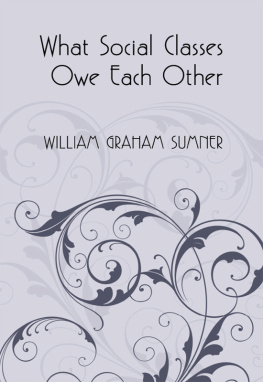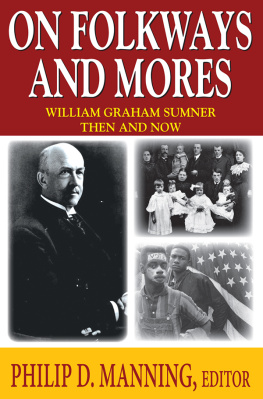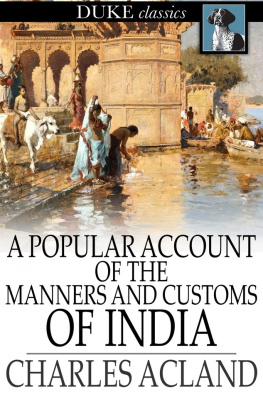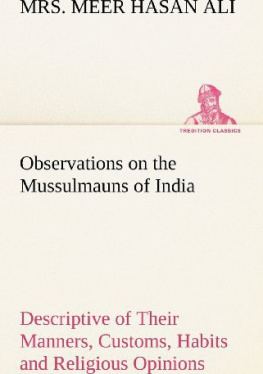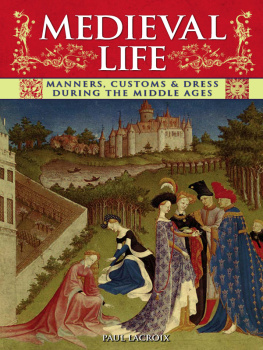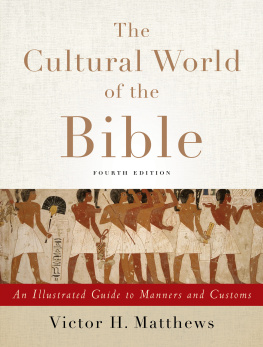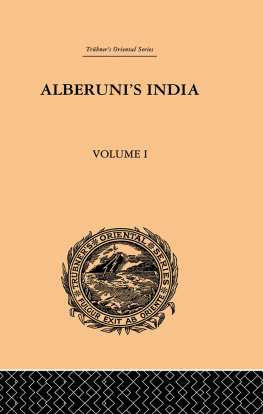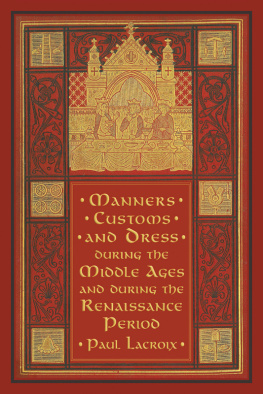Transcriber's Note:
Alternative spellings of some words have been retained as they were used in the original book. |
WILLIAM GRAHAM SUMNER
WILLIAM GRAHAM SUMNER (1902)
FOLKWAYS
A STUDY OF THE SOCIOLOGICAL IMPORTANCE
OF USAGES, MANNERS, CUSTOMS,
MORES, AND MORALS
BY
WILLIAM GRAHAM SUMNER
Professor of Political and Social Science in Yale University
Thus it is clearly seen that use, rather than reason, has power to introduce new things amongst us, and to do away with old things.Castiglione, Il libro del Cortegiano, I, 1.
That monster, custom, who all sense doth eat, Of habits devil, is angel yet in this, That to the use of actions fair and good He likewise gives a frock or livery, That aptly is put on.Hamlet, III, 4.
What custom wills, in all things should we do't.
Coriolanus, II, 3.
GINN AND COMPANY
BOSTON NEW YORK CHICAGO LONDON
ATLANTA DALLAS COLUMBUS SAN FRANCISCO
Entered at Stationers' Hall
Copyright, 1906, by
WILLIAM GRAHAM SUMNER
ALL RIGHTS RESERVED
PRINTED IN THE UNITED STATES OF AMERICA
733.1
The Athenum Press
GINN AND COMPANY PROPRIETORS
BOSTON U.S.A.
PREFACE
In 1899 I began to write out a text-book of sociology from material which I had used in lectures during the previous ten or fifteen years. At a certain point in that undertaking I found that I wanted to introduce my own treatment of the "mores." I could not refer to it anywhere in print, and I could not do justice to it in a chapter of another book. I therefore turned aside to write a treatise on the "Folkways," which I now offer. For definitions of "folkways" and "mores" see secs. 1, 2, 34, 39, 43, and 66. I formed the word "folkways" on the analogy of words already in use in sociology. I also took up again the Latin word "mores" as the best I could find for my purpose. I mean by it the popular usages and traditions, when they include a judgment that they are conducive to societal welfare, and when they exert a coercion on the individual to conform to them, although they are not cordinated by any authority (cf. sec. 42). I have also tried to bring the word "Ethos" into familiarity again (secs. 76, 79). "Ethica," or "Ethology," or "The Mores" seemed good titles for the book (secs. 42, 43), but Ethics is already employed otherwise, and the other words were very unfamiliar. Perhaps "folkways" is not less unfamiliar, but its meaning is more obvious. I must add that if any one is liable to be shocked by any folkways, he ought not to read about folkways at all. "Nature her custom holds, let shame say what it will" (Hamlet, IV, 7, ad fin.). I have tried to treat all folkways, including those which are most opposite to our own, with truthfulness, but with dignity and due respect to our own conventions.
Chapter I contains elaborate definitions and expositions of the folkways and the mores, with an analysis of their play in human society. Chapter II shows the bearing of the folkways on human interests, and the way in which they act or are acted on. The thesis which is expounded in these two chapters is: that the folkways are habits of the individual and customs of the society which arise from efforts to satisfy needs; they are intertwined with goblinism and demonism and primitive notions of luck (sec. 6), and so they win traditional authority. Then they become regulative for succeeding generations and take on the character of a social force. They arise no one knows whence or how. They grow as if by the play of internal life energy. They can be modified, but only to a limited extent, by the purposeful efforts of men. In time they lose power, decline, and die, or are transformed. While they are in vigor they very largely control individual and social undertakings, and they produce and nourish ideas of world philosophy and life policy. Yet they are not organic or material. They belong to a superorganic system of relations, conventions, and institutional arrangements. The study of them is called for by their social character, by virtue of which they are leading factors in the science of society.
When the analysis of the folkways has been concluded it is necessary that it should be justified by a series of illustrations, or by a setting forth of cases in which the operation of the mores is shown to be what is affirmed in the analysis. Any such exposition of the mores in cases, in order to be successful, must go into details. It is in details that all the graphic force and argumentative value of the cases are to be found. It has not been easy to do justice to the details and to observe the necessary limits of space. The ethnographical facts which I present are not subsequent justification of generalizations otherwise obtained. They are selections from a great array of facts from which the generalizations were deduced. A number of other very important cases which I included in my plan of proofs and illustrations I have been obliged to leave out for lack of space. Such are: Demonism, Primitive Religion, and Witchcraft; The Status of Women; War; Evolution and the Mores; Usury; Gambling; Societal Organization and Classes; Mortuary Usages; Oaths; Taboos; Ethics; sthetics; and Democracy. The first four of these are written. I may be able to publish them soon, separately. My next task is to finish the sociology.
W. G. SUMNER
Yale University
With the reprinting of Folkways it seems in place to inform the admirers of this book and of its author concerning the progress of Professor Sumner's work between 1907 and his death, in his seventieth year, in April, 1910. Several articles bearing on the mores, and realizing in part the programme outlined in the last paragraph of the foregoing Preface, have been published: "The Family and Social Change," in the American Journal of Sociology for March, 1909 (14: 577-591); "Witchcraft," in the Forum for May, 1909 (41: 410-423); "The Status of Women in Chaldea, Egypt, India, Judea, and Greece to the time of Christ," in the Forum for August, 1909 (42: 113-136); "Mores of the Present and the Future," in the Yale Review for November, 1909 (18: 233-245); and "Religion and the Mores," in the American Journal of Sociology for March, 1910 (15: 577-591). Of these the first and last were presidential addresses before the American Sociological Society. All are included in Volume I (War and Other Essays) of a four-volume set of Sumner's writings, published since his death by the Yale University Press.
Regarding the treatise on the "science of society" (for he had decided to call it that instead of "sociology") mentioned in the Preface, it should be said that Professor Sumner left a considerable amount of manuscript in the rather rough form of a first draft, together with a great mass of classified materials. He wrote very little on this treatise after the completion of Folkways, and not infrequently spoke of the latter to the present writer as "my last book." It is intended, however, that the Science of Society shall be, at some time in the future, completed, and in such form as shall give to the world the fruits of Professor Sumner's intellectual power, clarity of vision, and truly herculean industry.
The present revision of Folkways incorporates but few and unimportant corrections. Certain of these are from the hand of the author, and others from that of the present writer.


